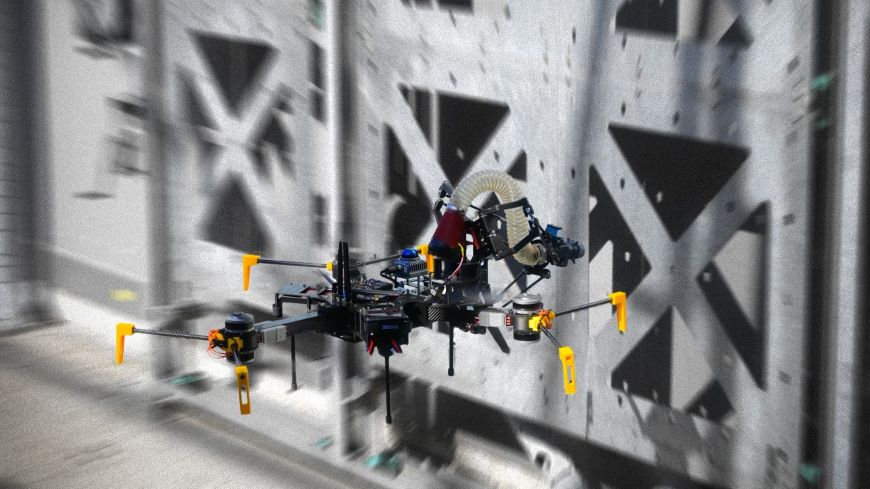Researchers from Empa and EPFL are investigating how aerial robots could process construction materials in the air. The team believes these flying platforms could complement existing ground-based construction systems, particularly in difficult-to-access locations or at great heights. Their findings were published as the cover story in the current issue of Science Robotics, detailing both current capabilities and future potential.

Construction drones offer several advantages over conventional ground-based systems. They can reach inaccessible places in mountains, disaster areas, or on rooftops without requiring fixed construction infrastructure. “Existing robotic systems on the ground often weigh several tons, take a long time to set up and have a limited working radius,” explains lead author Yusuf Furkan Kaya from the Sustainability Robotics Laboratory at Empa and EPFL.
The research categorizes Aerial Additive Manufacturing into three main approaches: constructing with modular units, creating tensile structures with linear elements, or building through continuous material deposition. At Empa, flying robots have already been programmed to work cooperatively to print materials layer by layer for construction or repair tasks. The technology shows particular promise for disaster relief operations where ground vehicles cannot access affected areas.
Despite their potential, construction drones face significant challenges. According to the researchers, progress requires simultaneous advancement in robotics, materials science, and architecture. “A drone may be able to fly precisely, but without lightweight, stable and processable materials, it cannot develop its full potential,” notes Mirko Kovac, Head of the Laboratory of Sustainability Robotics at Empa and EPFL.
The new DroneHub at Empa’s NEST research building will play a key role in developing these technologies. This testing facility serves as a bridge between laboratory research and industrial applications, allowing construction drones to be tested under real-world conditions. The infrastructure supports a joint professorship for Sustainability Robotics between Empa and EPFL and extends their partnership with Imperial College London, with the first field trials planned for this year.
Source: empa.ch

